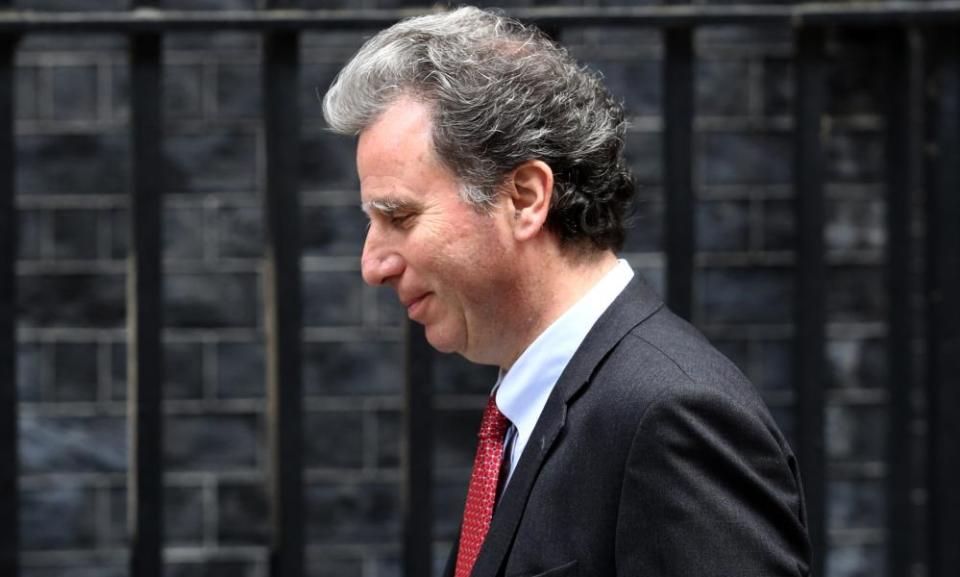Oliver Letwin: government must look at tax rises for sake of public services

One of the key architects of David Cameron’s austerity programme has suggested the government must consider tax rises and increased spending on public services to respond to overwhelming pressure on social care, schools and the NHS.
Oliver Letwin, former chancellor of the Duchy of Lancaster who was Cameron’s head of policy, said he believed most people were prepared to see a modest rise in tax bills in order to fund investment in public services, but stopped short of saying that should mean an end to the public sector pay cap.
“It may well be, in one way or another, a large number of people will have to pay a little more tax if we are going to maintain the trend towards reduced deficits and yet spend a little more on the crucial public services that do need more spent on them,” the MP said.
On Wednesday, the Labour leader, Jeremy Corbyn, and members of the shadow frontbench will table an amendment to the Queen’s speech, calling for cuts to emergency services including the police and the fire service to be reversed, and for an end to the 1% cap.
Letwin said the priority should be investment in services, such as social care, rather than pay rises for staff. “I think what is at stake here in the first place is the quality of the delivery of public services,” he said.
In its manifesto, Labour pledged that it would only increase taxes for those earning more than £80,000 a year, the top 5% of earners. Though the Conservative manifesto made no such firm commitment, Theresa May and the chancellor, Philip Hammond, said repeatedly during the election campaign that the Tories were the “party of low taxes”.
However, Letwin suggested modest tax rises should also be considered for middle earners. “Some taxes can be raised in a careful way without provoking massive problems for families,” he said.
“Those of us who are lucky enough to have higher incomes will have to bear more one way or another the costs of any increase in public service expenditure. But I’m not at all suggesting you can restrict to only dealing with whatever Mr Corbyn defines as the very rich.”
Letwin said voters had sent a message at the general election that they were concerned about pressures on underfunded services. “We all found that on the doorsteps,” he said.
“I talked to hundreds, around 3,000, of my electors face to face; I got the same sense from almost every colleague: people were much more concerned at this election about spending on schools, spending on health and social care – crucial public services which now seem to be under strain.”
However, Letwin said the government should not row back on its commitment to deficit reduction. “The truth is we need to maintain, as a country, for the sake of all of us, credibility with investors,” he said.
“We need to be sure that when the next downturn comes, we are well protected rather than exposed. We have to continue the programme of restoring fiscal credibility and getting back to balanced budgets.
“That is very important, but it is compatible with easing up a little, not a great splurge, but easing up on spending on key public services if one is prepared to bite the bullet of carefully judged and carefully presented tax increases.”

 Yahoo News
Yahoo News 